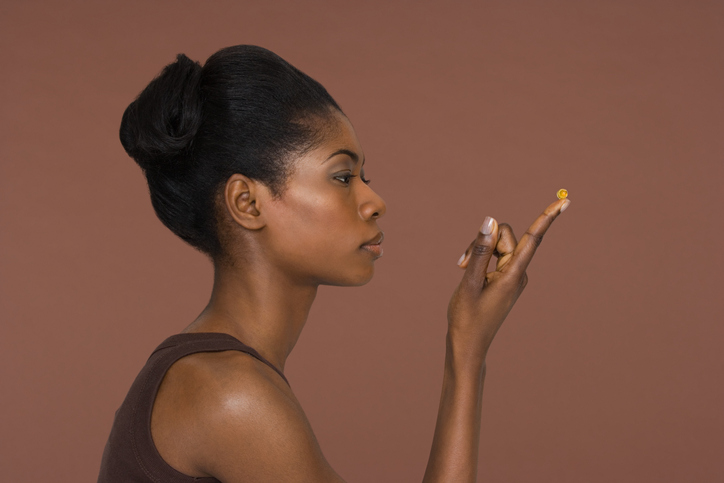5 emerging trends from leading beauty experts
Inclusiveness
“I think something important that we should keep an eye on unmanageable beauty is how it fills the gaps of inclusive beauty in topical beauty spaces. Obviously anti-aging is an area where there’s a lot of research missing in the US for darker skinned people and I’ve heard a lot of people from researchers to brands talking about the use of unmanageable beauty to fill those gaps. noted Ravyn Cullor, Editor-in-Chief, CosmeticsDesign-USA.
Indeed, Lycored, maker of ingestible carotenoid skincare ingredients, surveyed 1,285 consumers in the US and UK and asked them to define their skin tone in one of five categories (dark brown or black; brown; light brown; white – darker; and white – pale or light).
When asked what skincare goals they wanted to achieve, consumers with the darkest skin tones were much more likely to select a healthy glow. It was a goal for 67% of Americans with brown or black skin, compared to 51% of those with light or fair skin.
Meanwhile, people with the lightest skin tones were the most likely to seek UV protection. In the UK, this was a goal for 34% of respondents with pale or fair skin, compared to 17% of those with brown or black skin.
In the United States, 73% of consumers who define their skin as brown or black purchased a product designed for their particular skin tone, as did 54% of those with white skin.
Additionally, research suggests that products that don’t target particular tones and colors like ingestible beauty are appealing to consumers. Three-quarters of Americans surveyed agreed with the statement, “Products that provide the same benefits to people of all skin colors provide a platform for inclusivity.”
Become personal
“The whole idea of personalization, whether it’s related to personalization because of the microbiome. Customize based on life stage or location before end of pregnancy, post pregnancy, post menopause or age of customer and also customize by gender, and customize by simple diversity, which this rayn was just nodding to. I think when you’re talking about customers looking for very specific solutions, they’re looking for something that works for them. So the idea of Smooth Nation and the research that’s going on right now. Supporting this idea is what I would like to keep an eye on,” said Sudipta Veeramachaneni, Vice President and Chief Scientific Officer, GNC.
“I would totally agree about personalization and environmental impacts and what that has on beauty. So epigenetics, nutrigenomics, collagen boosters.. going beyond collagen, so where some synergistic ingredients that work well to fortify and strengthen skin, hair and nails,” said Paula Simpson, Innovation, Product Development and Branding Consultant, Nutribloom Consulting.
Beauty and the box
Consumers are asking for less packaging and brands are listening. Whether it’s reducing the total amount of packaging, using more recyclable materials, or using reusable packaging, the beauty industry is listening as more and more brands are increasingly turning to alternatives to plastic. Beyond packaging, consumers are also looking to replace polluting ingredients and chemical processes with more sustainable organic alternatives.
The biotechnology boom
Simpson said she also sees ingestible trends moving towards body contouring and minimizing cellulite becoming more mainstream, as well as biotechnology. “A kind of hybrid between eco-consciousness and sustainability with biotechnology. I see a lot of seaweed companies finding sustainable ingredients to help not only with food supply, but also with ingestible beauty.
fashionable science
Traditional medicines such as Ayurveda, Kampo, Traditional Chinese Medicine, and Unani have been practiced for thousands of years across the world, but have only recently made their way into products. in the USA.
While we are only the tip of the iceberg in terms of existing plant species that have been scientifically researched for bioactivities, natural products and traditional medicines have already made fruitful contributions.
“I think obviously there’s going to be a push for efficacy and for science. And I’m also watching mainstream medicine increasingly turn into supplements,”said Giorgio Dell’Aqcua, president of the New York Society of Cosmetic Chemists. “Now I think brands are really learning more about these phytochemicals and what they do. Phytochemicals have been studied for thousands of years all over the world with strong, solid evidence from China, from India, from Europe, from different regions. And now we are reading these publications and we know that they have the potential and we want to use them here in the western world. We are so into medicines, in the vitamins, and I really hope there’s going to be a growing trend on phytochemicals with the lesson of traditional medicine and what they do and more studies to be done and developing that knowledge – I think that might be very interesting for the industry.


Comments are closed.